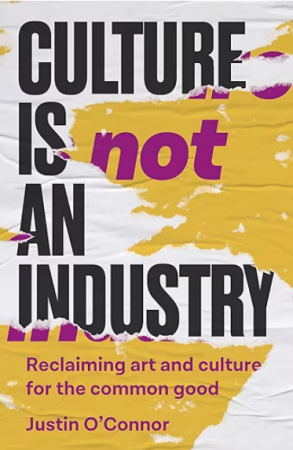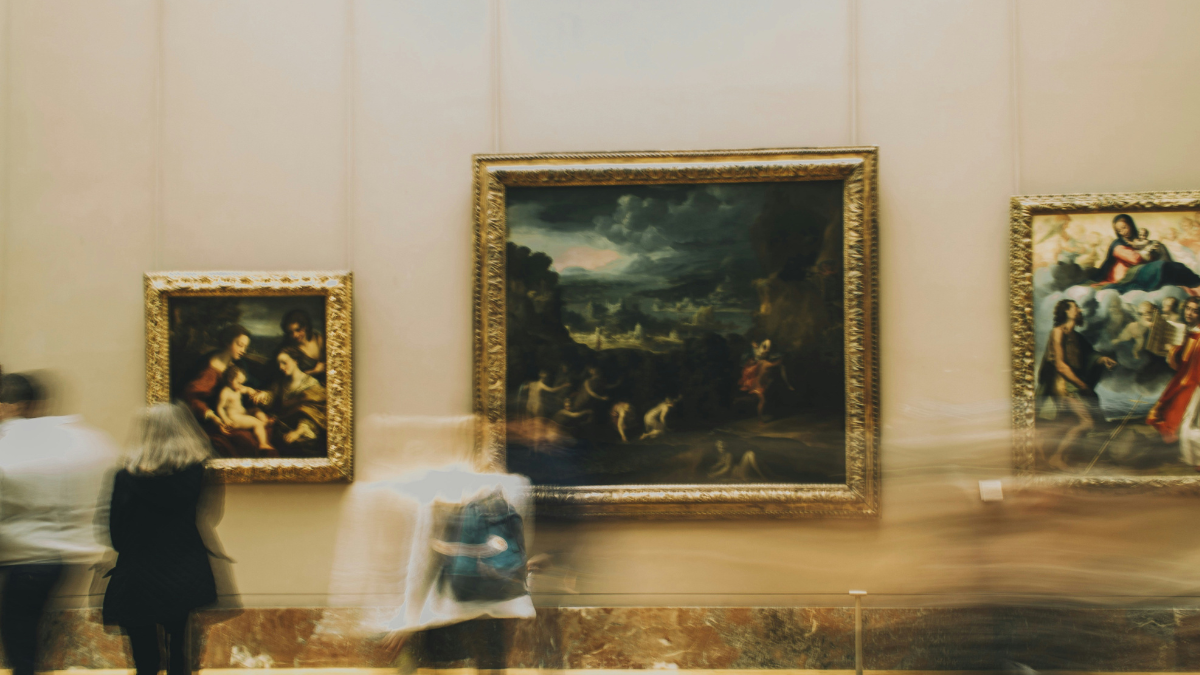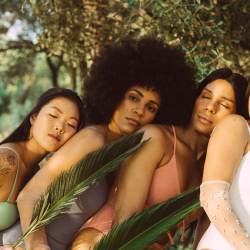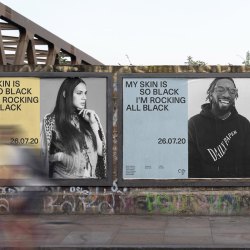Justin O’Connor is Professor of Cultural Economy at the University of South Australia. His new book, Culture Is Not An Industry, establishes culture as a public good and a human right, and urges governments to rethink and reframe cultural policy.
This interview has been edited for length.
Thanks you for your time, and for sending us a copy of the book. In Culture Is Not An Industry you mention the concept of creative industries as an experiment has failed. Can you expand on this, and the ideas of the book?

Yeah. Well, the creative industries was… I’m not sure it was an experiment. It was more like a rebranding. There was a common word meaning cultural industries, they would say ‘arts and cultural industries’. They decided to rebrand it in the late ’90s, mainly so it connected with the whole dot com digital thing. But in doing so, it expanded the concepts of cultural industries way into what’s not creative, basically. So it made it a very difficult concept, but it also displaced the idea of culture, which is at the heart of it. It undermined the cultural aspect of culture. And at the same time, it became increasingly about, ‘oh, it’s an industry, it’s an economic sector. We’ve got to grow it.’ Whereas that’s not the point of what culture is. It’s culture for culture, not for economic growth, although they’re not incompatible.
You claim that the current state of destruction we see in these industries is a result of social democratic policies that were put in place in the ’90s. Can you talk a little bit about the change you see in the culture industries starting from the ’80s? Because to me, it feels like all of these — music, film, publishing, cinema, design, media, were all solid industries before the ’90s. Why do you think this has changed as a result of state policy instead of, let’s say, technological disruption?

The idea of the cultural industries goes back quite a long way. A cultural industry is basically a cultural product that can be mass-produced. The first cultural industry was books, printing in that way. Later it’s photography and lithography, then it’s recorded music, film, and then later radio and television. All these things have been around since the late 19th century, and some of them earlier. But they were an issue for cultural policy. Do we just allow them to happen? Does the state somehow regulate them? Do we regulate certain aspects of these things? All these questions were around, usually around film, and then especially around television and radio, which were very regulated. But in the 1980s, that changed. There was a rise. Technology was part of it, but also the spread of global markets, communications, industries, all combined.
At the same time we’ve got locally, in the ’60s, so many new people getting involved in music, popular music, writing, fashion. There’s an explosion of popular culture, and a lot of it is commercial. In fact, most of it is commercial in that it’s not state-funded. Nobody gave The Beatles a grant. So the problem then was, how do we keep the diversity, the grass roots nature of all this popular culture? We know it’s commercial, but how do we stop it becoming overtaken by the big corporations? How do we keep it local? That was a big challenge. That was what the cultural industry was about.
My argument is the creative industries dropped all those concerns and just thought, ‘Oh, well, creative industries, it’s all about grass roots, popular culture. It’s all about commerce and markets. Let’s grow it because it’s good for the economy, it’s good for employment.’ And they had no real idea how to control some of the other aspects of those industries. We now know that six of the 10 largest corporations on the planet are cultural organisations. They distribute and often produce culture: Netflix, Meta, Amazon… they’re massively powerful, and the creative industries’ agenda has nothing to say about that.
It’s a tough one, because on the one hand you do want the government to support these industries, but on the other hand I feel like you’re advocating for more local government involvement. That’s such a delicate balance because local governments don’t usually have the funding, but the creative industries each have very different dynamics. You mention Cory Doctorow’s book a lot, which is one of my favourite books that I’ve read about this industry. It talks about the monopolization of each culture industry individually. And we know that that has a massive impact on the state of these industries. But these are different industries with different dynamics and reasons for being in the states that they are right now. Do you think there’s a danger in framing the failure of these individual industries as the result of a rebranding effort, as you said?
Well, first of all, let me go back to what you said about local government. Local governments have a very important role to play in art and culture. They provide in the UK, and it’s similar in other places, at least 50% of funding for art and culture broadly speaking. They’ve been cut, of course. In the UK they’ve been cut very badly, and they’ve lost over half of their budget in the last 10 years. So it’s not that local governments don’t have money in the UK. They have been actively cut by the central government. It’s not a natural thing. Local government should have a very strong role in these things. The first modern cultural industry policy began with London, the Greater London Council, in the ’80s. The drivers of the cultural industries’ agenda throughout the 1990s were cities. I was involved in a lot of cities because they can touch and feel these small industries. You think about large-scale regulation, large-scale tax issues, different forms of control around broadcasting, about import-export. They have a role there. And of course, educational funding, which is crucial in all this. So there are different levels in that.
There’s also different levels between state funding. I mean, you call it an industry. Often it’s just small scale businesses, profit, not-for-profit, but usually mixing the two together in some way. It’s a support for those. It’s about regulation around property, access to property. Even things like free healthcare, levels of education, subsidies. There’s a whole range of things that go underneath what we just think of as a cluster of creative businesses. Finding ways to support and encourage that diversity of small-scale businesses or co-ops or individuals, whatever we want to call them, is really important. What the creative industries did was take away from that concern. It’s that narrow constraint that we forgot the purpose of art and culture, we reduced it to an industry. We didn’t even analyse it as an industry. We thought of it as some startup ecosystem. It’s failed on all those points. And I’m saying we need to go back to square one and start looking at what our priorities are.
So what does that look like? What are some potential solutions? And what would it mean to approach culture as a social service, as you mention in the book?
Well, I think it’s very simple, and it’s easy to say, but it’s cultural rights and cultural infrastructure. We’ve got it there. It’s in the 1948 Declaration of Human Rights. Everybody has a right to fully participate in the cultural and the artistic life of the community. And they need the infrastructure, and I mean the spaces, but also the educational facilities, the social capital, the relations of trust, the social context in which they feel confident and they have the ability, financial and educational, to participate in that culture.
I get that, and I think you’re right. But then I also think a lot of culture has moved to a digital sphere. So in a way, we have a lot of culture for free right now. You can use YouTube to watch movies or learn about any type of cultural production that you want to do. So much of journalism is now free. I don’t think these are good things, by the way, because this has hurt those industries a lot. But in a way, I think it has also made participation in culture much easier. So why do you think that’s not the case? What do you think is missing there?
Well, I mean, journalism is perhaps the easiest one because journalism has collapsed. There’s lots of free access to something that looks like journalism content, but deeper investigative journalism with a group of experienced journalists, that is really disappearing. In Australia there’s one company, Rupert Murdoch, who runs the whole thing. And they’re now using AI to generate stories.
And some of the other culture, I mean, of course, you go online, it’s full of influencers. I can go out tomorrow and do my thing. And who knows? Five people might watch it or a million people might watch. It’s a lottery in that way. That’s not a sustainable culture. When you get to, how do you produce longer form films? You need money, time, expertise, and you need distribution. If you go to Hollywood, and whatever that means these days, but Marvel Studios — yes, they put millions of dollars and we see them all the way through the world. But if you’re an independent filmmaker, it’s extremely difficult to get funding for films now, extremely difficult to get anywhere near a distribution.
So the digital in that sense, in terms of distribution channels, it’s opened up channels, but at the same time, it’s led to massive levels of concentration and monopoly of a light we’ve never seen before on the planet. There’s that question about who’s got power within that.
The other question is the nature of digital engagement. Whereas even 10 years ago, most people were quite optimistic about that. We now know there’s some real problems with digital engagement. The actual idea of culture as an on-screen, individual form of cultural consumption is not actually part of that social basis of culture. And just the idea that your vision itself is reduced to a screen… We cannot have life on screen, and we cannot live all our lives on digital. And yet that’s what big companies are trying to make us do.
Featured image: Diogo Fagundes / Unsplash































